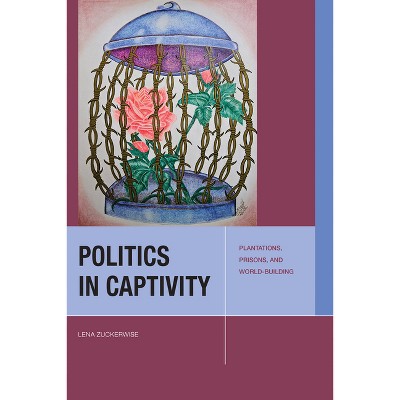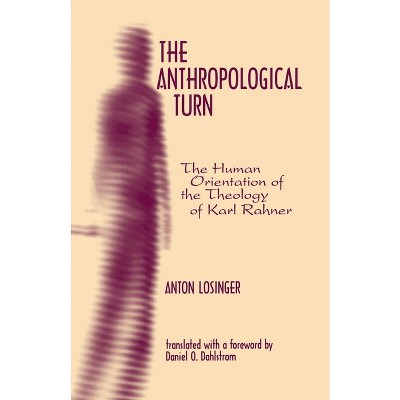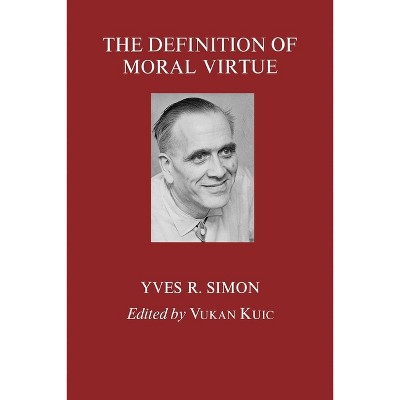Throwing the Moral Dice - (Just Ideas) by Thomas Claviez & Viola Marchi (Paperback)

About this item
Highlights
- More than a purely philosophical problem, straddling the ambivalent terrain between necessity and impossibility, contingency has become the very horizon of everyday life.
- About the Author: Thomas Claviez (Edited By) Thomas Claviez is Professor for Literary Theory at the University of Bern, where he is responsible for the MA program in World Literature.
- 288 Pages
- Philosophy, Ethics & Moral Philosophy
- Series Name: Just Ideas
Description
About the Book
From deconstruction to feminism to ecological thought, some of today's most influential thinkers consider the challenge that contingent life poses to the broad claims of ethics. In doing so, they reshape the most debated concepts of moral philosophy.Book Synopsis
More than a purely philosophical problem, straddling the ambivalent terrain between necessity and impossibility, contingency has become the very horizon of everyday life. Often used as a synonym for the precariousness of working conditions under neoliberalism, for the unknown threats posed by terrorism, or for the uncertain future of the planet itself, contingency needs to be calculated and controlled in the name of the protection of life.
The overcoming of contingency is not only called upon to justify questionable mechanisms of political control; it serves as a central legitimating factor for Enlightenment itself. In this volume, nine major philosophers and theorists address a range of questions around contingency and moral philosophy. How can we rethink contingency in its creative aspects, outside the dominant rhetoric of risk and dangerous exposure? What is the status of contingency--as the unnecessary and law-defying--in or for ethics? What would an alternative "ethics of contingency"--one that does not simply attempt to sublate it out of existence--look like? The volume tackles the problem contingency has always posed to both ethical theory and dialectics: that of difference itself, in the difficult mediation between the particular and the universal, same and other, the contingent singularity of the event and the necessary generality of the norms and laws. From deconstruction to feminism to ecological thought, some of today's most influential thinkers reshape many of the most debated concepts in moral philosophy: difference, agency, community, and life itself. Contributors: Étienne Balibar, Rosi Braidotti, Thomas Claviez, Drucilla Cornell, Hans Ulrich Gumbrecht, Viola Marchi, Michael Naas, Cary Wolfe, Slavoj ZizekFrom the Back Cover
"Act 'as' the world wants, or act 'as if' the will of the ethical subject were worth the world? We can, I think, escape the trap of this alternative by considering some of the confusion surrounding the notion of 'necessity.' . . . All in all, everything is necessary, except the necessity of this necessariness."--Alain Badiou, from the Foreword
"We live in uncertainty, and we are not afraid to admit it, but can we say we know that uncertainty--know it well enough to act responsibly in it? This volume boldly reinterprets uncertainty as a symptom of social exclusion, a product of the otherness outside community. Not content to identify justice with the incalculable, Claviez and Marchi explore the mystery of how mere contingencies can give rise to real ethical imperatives. The volume makes an unusual and powerful claim on all serious readers."--Bruce Robbins, Columbia University "Throwing the Moral Dice treats the question of ethics, and thus of community, as intrinsically bound up with contingency in a new and inspiring manner. The scholarship that went into the chapters is erudite and remarkable."--Elisabeth Weber, University of California, Santa Barbara "This book invites us to listen to contingency without judgment and fear by showing us how to disentangle subjecthood from responsibility for agency."--Timothy C. Campbell, Cornell University Contingency has become the very horizon of everyday life. Often used as a synonym for the precariousness of working conditions under neoliberalism, for the unknown threats posed by terrorism, or for the uncertain future of the planet itself, contingency needs to be calculated and controlled in the name of the protection of life. But contingency is also a philosophical problem, straddling the ambivalent terrain between necessity and impossibility. From deconstruction to feminism to ecological thought, some of today's most influential thinkers come together in this book to rethink contingency in its relation to ethics, reshaping many of the most debated concepts in moral philosophy. Contributors: Étienne Balibar, Rosi Braidotti, Thomas Claviez, Drucilla Cornell, Hans Ulrich Gumbrecht, Viola Marchi, Michael Naas, Cary Wolfe, Slavoj Zizek Thomas Claviez is Professor of Literary Theory at the University of Bern. Viola Marchi is a postdoctoral researcher at the University of Bern.Review Quotes
Throwing the Moral Dice treats the question of ethics, and thus of community, as intrinsically bound up with contingency in a new and inspiring manner. The scholarship that went into the chapters is erudite and remarkable.---Elisabeth Weber, University of California, Santa Barbara
Act 'as' the world wants, or act 'as if' the will of the ethical subject were worth the world? We can, I think, escape the trap of this alternative by considering some of the confusion surrounding the notion of 'necessity.' . . . All in all, everything is necessary, except the necessity of this necessariness: The laws of the world, while immediately necessary, could be other than they are, such that their necessity is only a contingent local covering of a radical contingency. . . . In any world a truth is created slowly on the basis of a contingency, whose value as exception this truth preserves in the recognizable form of a creation.---Alain Badiou, from the Foreword
If contingency is an ambiguous realm, as Roland Barthes once put it, then Claviez and Marchi are its explorers. They have assembled a cast of thinkers whose sometimes radically different perspectives allow us to see how deeply entangled ethics and kairos truly are. They invite us to listen to contingency without judgment and fear by showing us how to disentangle subjecthood from responsibility for agency.---Timothy C. Campbell, Cornell University
We live in uncertainty, and we are not afraid to admit it, but can we say we know that uncertainty--know it well enough to act responsibly in it? This volume boldly reinterprets uncertainty as a symptom of social exclusion, a product of the otherness outside community. Not content to identify justice with the incalculable, Claviez and Marchi explore the mystery of how mere contingencies can give rise to real ethical imperatives. The volume makes an unusual and powerful claim on all serious readers.---Bruce Robbins, Columbia University
About the Author
Thomas Claviez (Edited By)Thomas Claviez is Professor for Literary Theory at the University of Bern, where he is responsible for the MA program in World Literature. He is the author of Grenz fälle: Mythos- Ideologie- American Studies (1998) and Aesthetics and Ethics: Otherness and Moral Imagination from Aristotle to Levinas and from Uncle Tom's Cabin to House Made of Dawn (2008) and the coauthor, with Dietmar Wetzel, of Zur Aktualität von Jacques Rancière (2016). He has published widely on issues of community, recognition, literary theory, and moral philosophy. He is the editor of The Conditions of Hospitality: Ethics, Politics, and Aesthetics on the Threshold of the Possible (2013) and of The Common Growl: Towards a Poetics of Precarious Community (2016) and the coeditor of Aesthetic Transgressions: Modernity, Liberalism, and the Function of Literature (2006) and of Critique of Authenticity (2019). He is currently working on a monograph with the title A Metonymic Community? Towards a New Poetics of Contingency. Viola Marchi (Edited By)
Viola Marchi is a postdoctoral researcher at the University of Bern. She studied English and Italian literatures at the University of Pisa and the University of Bern, receiving her PhD in English from the latter in 2019, with a dissertation titled "Fuori Luogo: Community and the Impropriety of the Common." In 2016, with support of the Swiss National Science Foundation, she was a visiting fellow at the Scuola Normale Superiore in Pisa. She has published the articles "Ethics, Interrupted: Community and Impersonality in Levinas" (2015) and "The Alienation of the Common: A Look into the 'Authentic' Origin of Community" (2019). She is currently working on her first monograph. Alain Badiou (Foreword By)
Alain Badiou is Professor Emeritus of Philosophy at the École Normal Supérieure in Paris and still holds seminars at the Collège International de Philosophie and at the European Graduate School. A philosopher, political activist, and playwright, he has published some of the most original, influential, and by now classic works of contemporary philosophy: Theory of the Subject (1982), Manifesto for Philosophy (1989), Ethics: An Essay on the Understanding of Evil (1993), Deleuze: The Clamor of Being (1997), and the three installments of his most ambitious work: Being and Event (1988), Logics of the Worlds: Being and Event 2 (2006), and The Immanence of Truths: Being and Event 3, released in French in 2018.





